How to manage your diabetes and Why you should

It's important to learn how to manage your diabetes and the steps necessary to avoid the disease. It's also equally important to understand "why" you should manage diabetes. Here's a new concept worth thinking about and it could help be a motivation to live a healthy life.
Energy contributes to happiness
Invest right now into your future energy levels. Good energy levels contribute to happiness.
We all try to invest funds so we can retire someday without having to work. We want the ability to survive. We should all be concerned with having energy in our future health as well. Retirement money gives us the ability to live in comfort, but energy gives us the desire to live and thrive. Energy helps make us happy.
If you don't manage your diabetes, you will not only have poor energy levels in the future, you will also have symptomatic pain from the disease. We could say it's like having the flu all the time right up until the end. Not much of a future to look forward to.
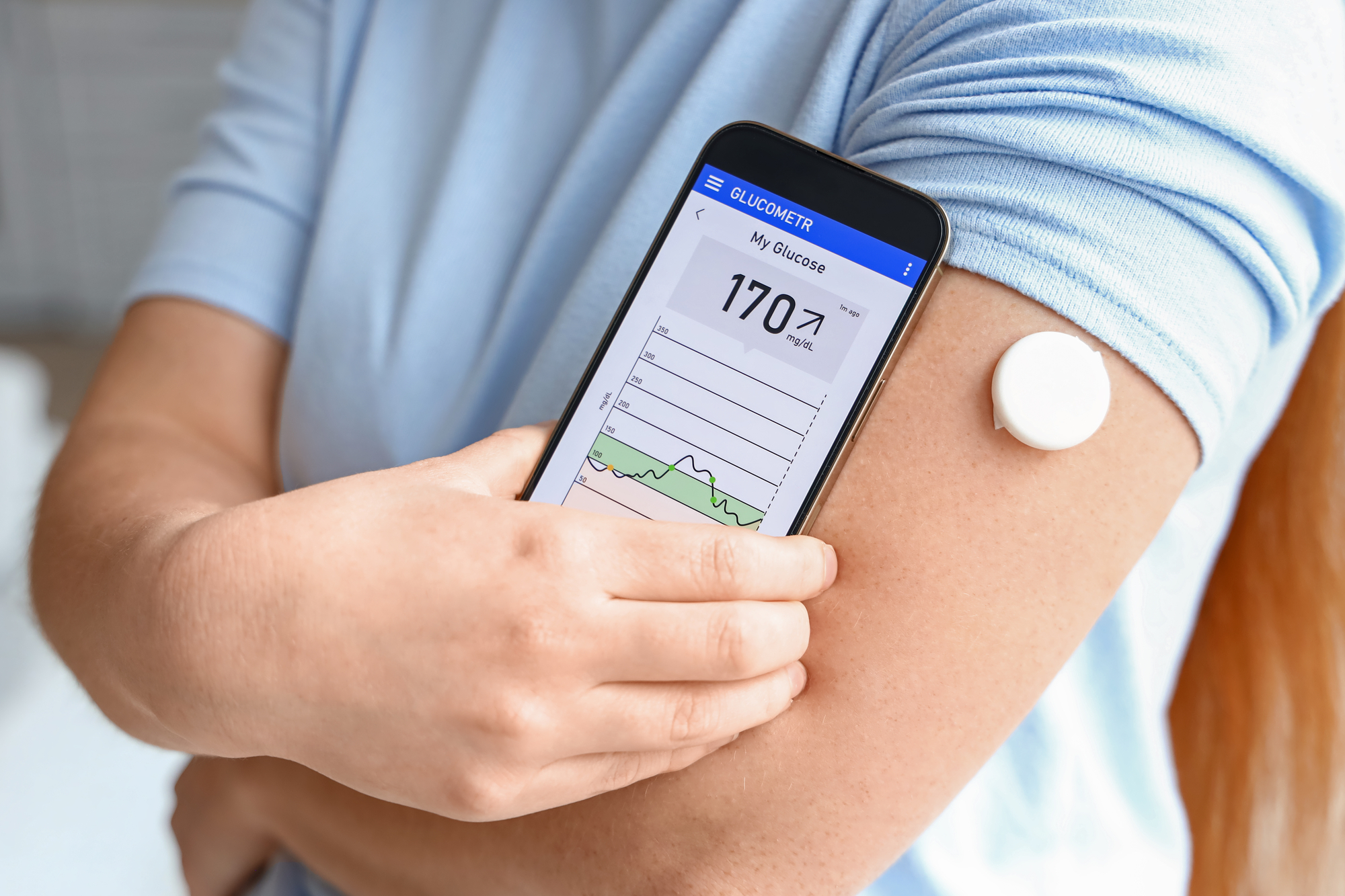
You invest in your future health energy by keeping your blood glucose levels in a healthy range as much as you can.
Your doctor will advise you to try and stay under a certain number such as 180 to maintain a healthy pancreas. A cgm can help you know where your levels are all the time.
Learning how to manage your diabetes should start with an A1C test
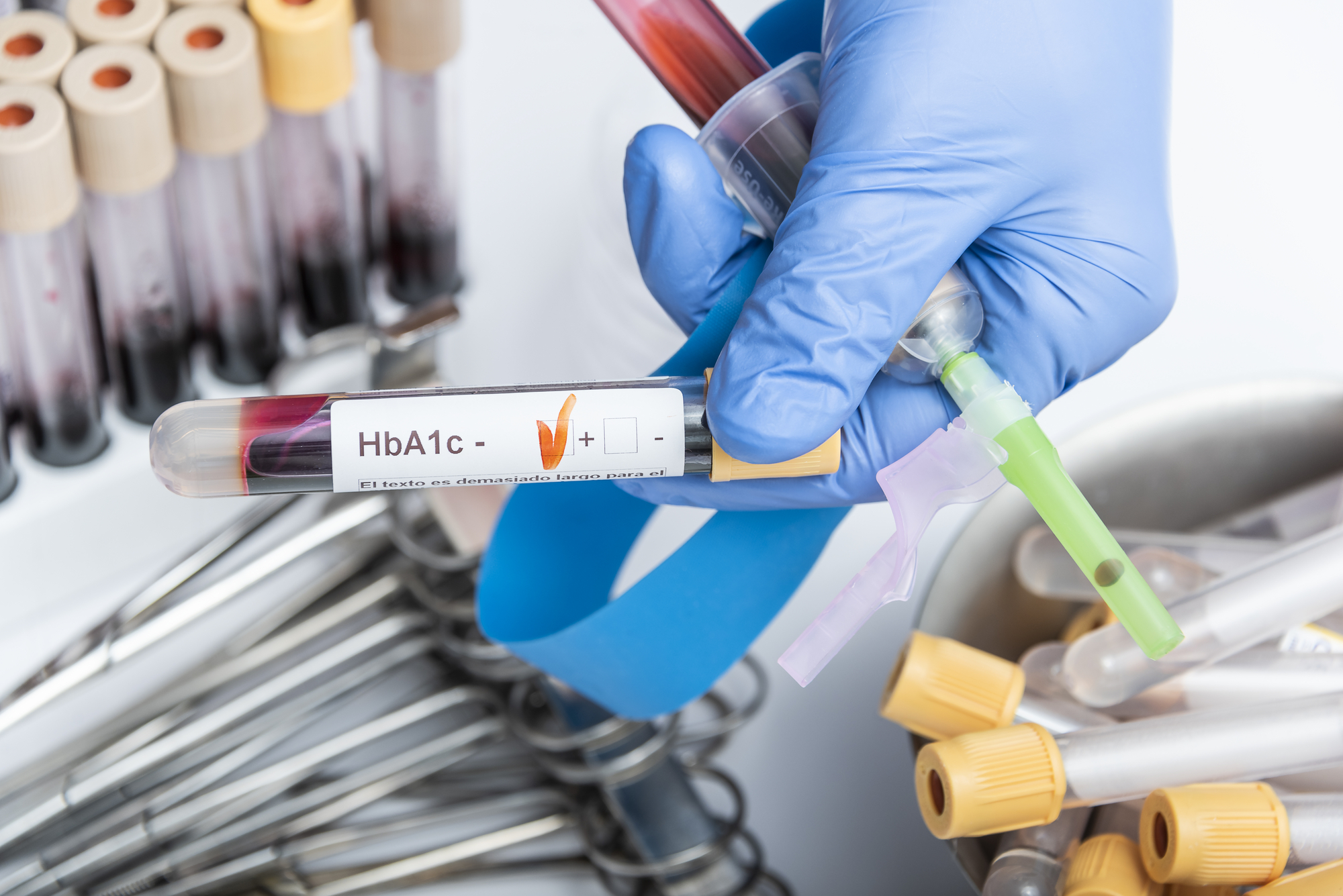
The very first place for you to start is by getting your a1c blood test.
It tests how much sugar has attached to the hemoglobin cells over a three month period.
The A1C test shows your doctor how well your pancreas is allowing the glucose to enter the cells to provide energy to your body. If there are a high amount of glucose surrounding the hemoglobin cells, but unable to get into the cell, that means you have problems making insulin or are resistant to insulin.
It also means that slow damage is possibly being done by the restriction of oxygen to all your body parts because the hemoglobin cells are too bogged down by all the unusable glucose. This is what causes Diabetes Mellitus. The nerves become damaged from lack of blood flow. This opens the door to a plethora of other problems.

Manage diabetes to prevent early sickness or death
I don't like to focus on the advanced effects of diabetes, but when I see so much suffering and death, I get motivated to try and encourage others to see the reasons why we need to prevent diabetes.
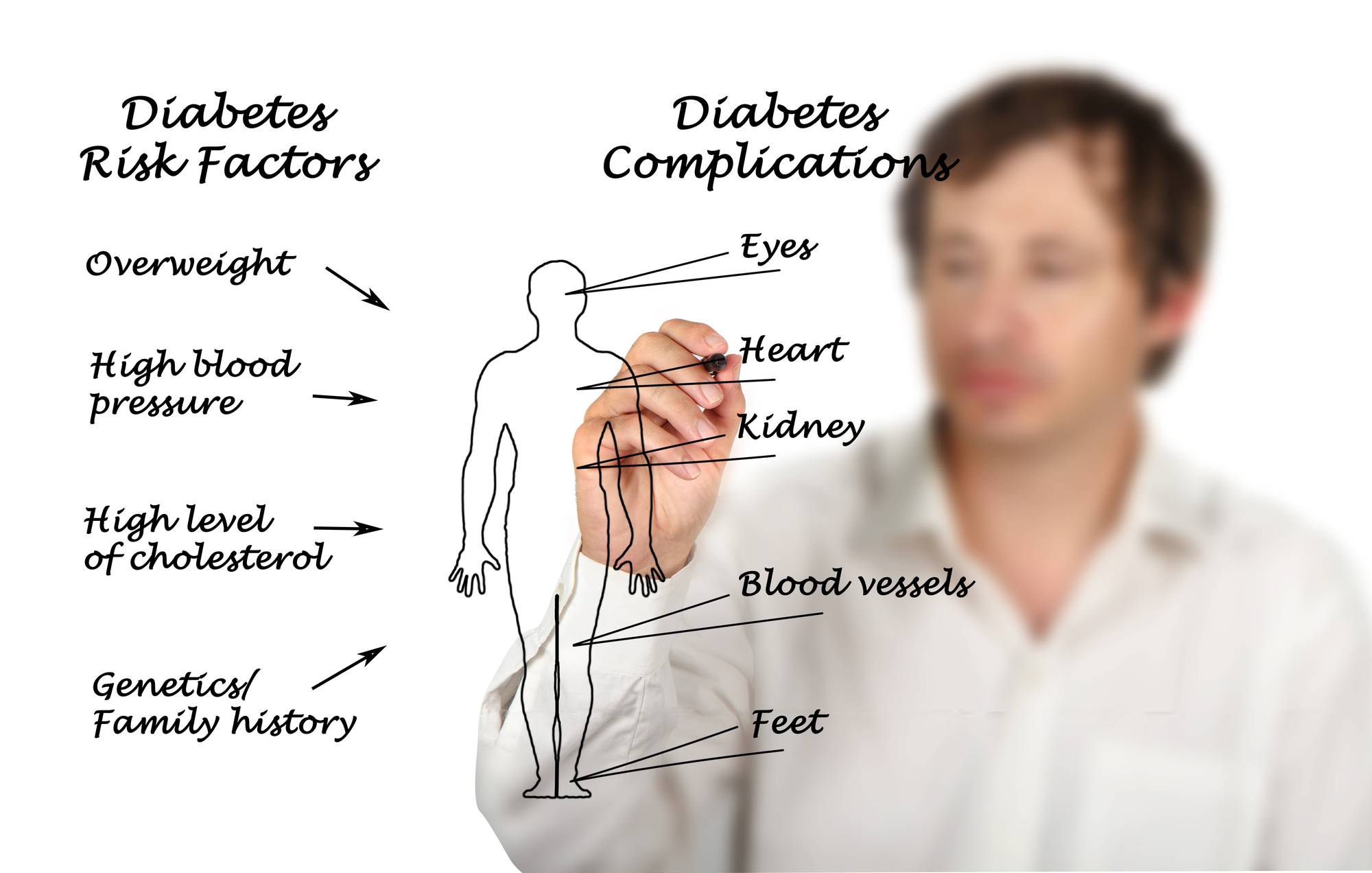
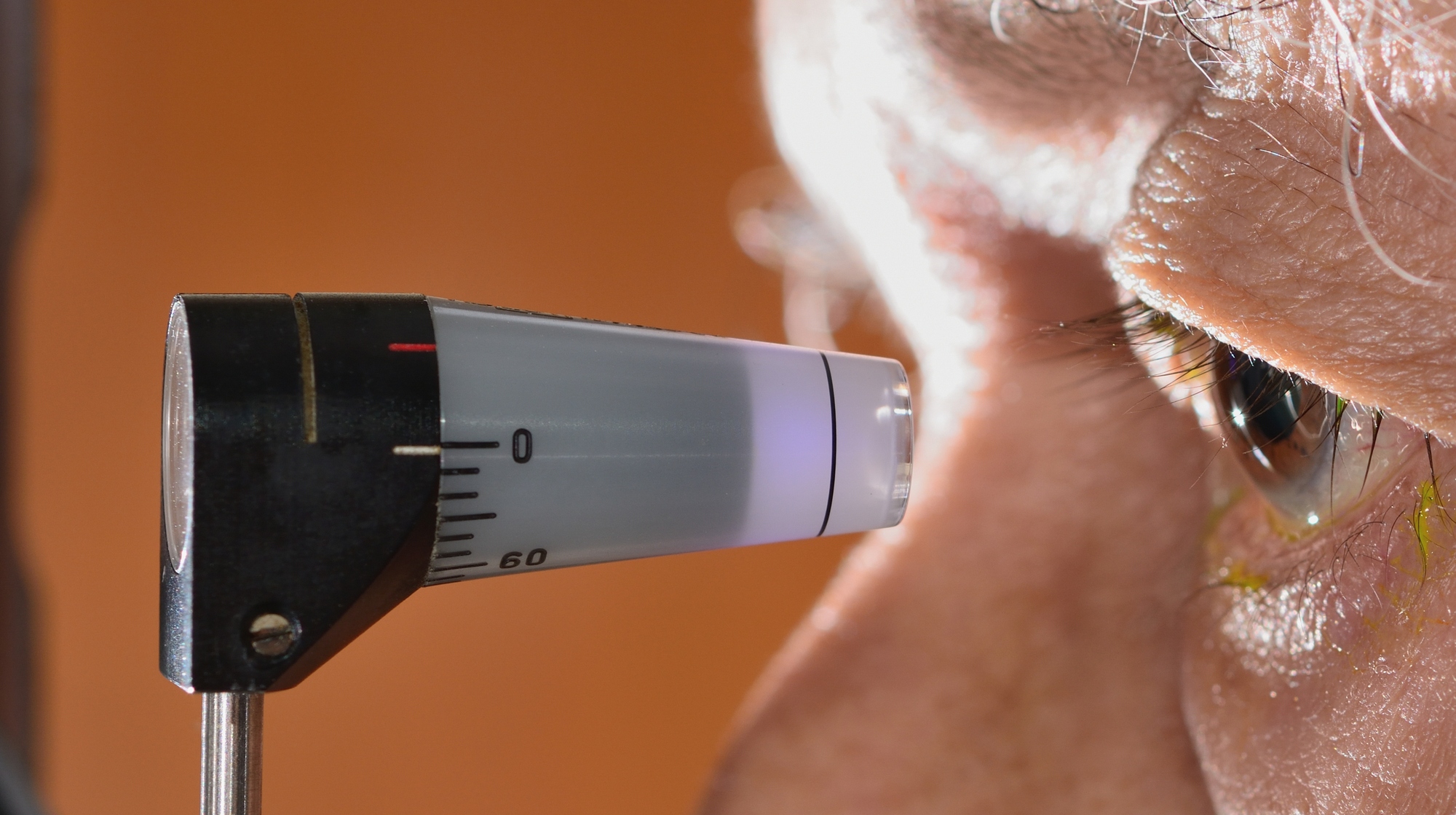
Diabetes reduces oxygen in the blood. The extremities are the first to suffer. Eyes and vision can be damaged because of low oxygen flow over time. Vision loss occurs slowly and sometimes it can lead to total blindness.

Lack of oxygen to the eyes can lead to partial or full blindness.
Some diabetic patients start to get vision spots which get worse as time goes on.
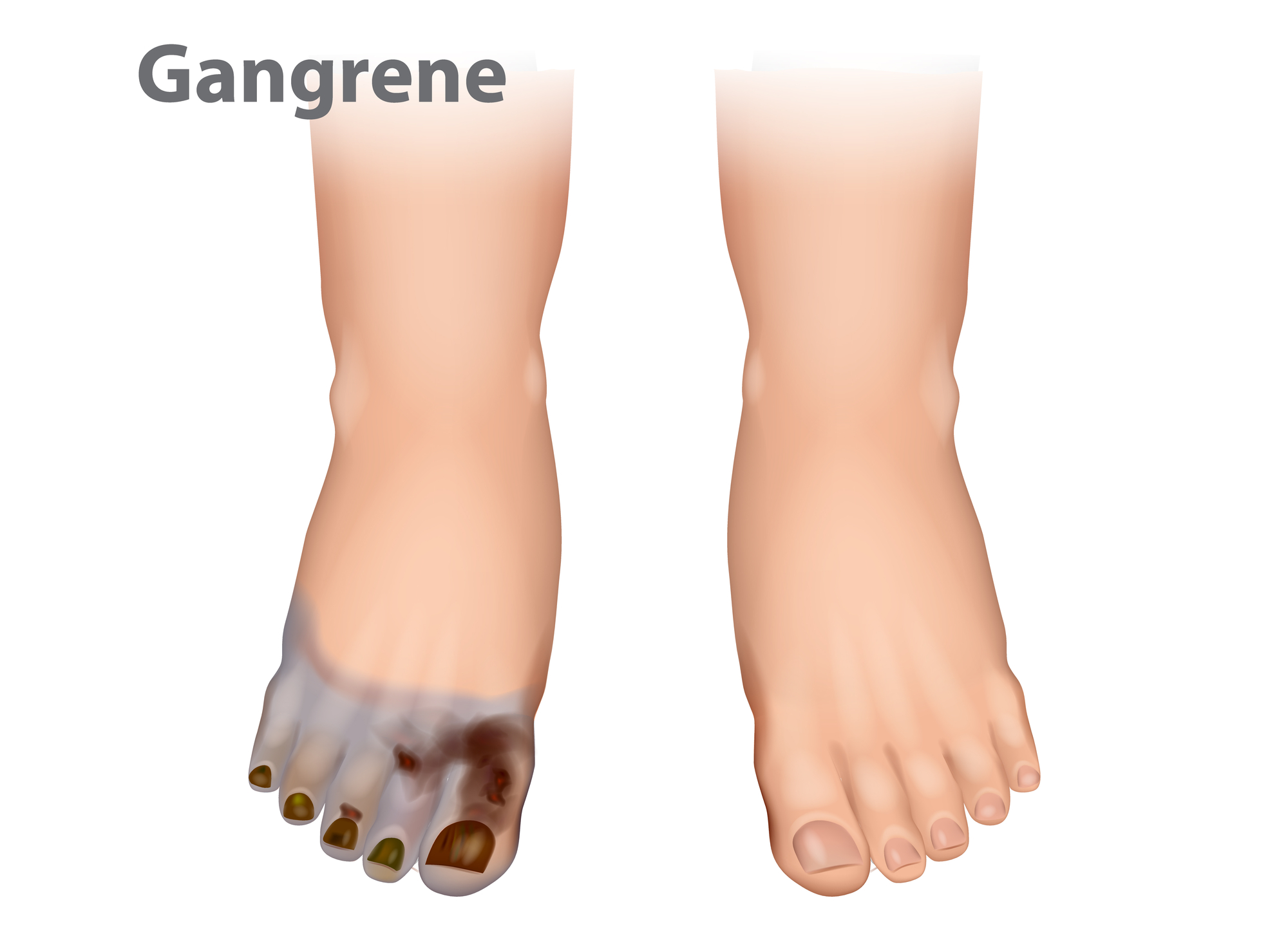
Our bodies need to have a full supply of oxygen in the blood to get to the furthest blood vessels. If there isn't a full oxygen supply, then it's a "first come first served" basis that eventually leads to some parts dying causing gangrene. The gangrenous part needs to be removed to save the life of the person.

There is nothing fair about diabetes. It is destructive and it causes a lot of pain and loss.

A few years back, I met an old family friend. A hard working dairy farmer. He was always happy. His description of a perfect day would always involve a "cherry pie and a quart of maple nut ice cream." He had developed type-2 diabetes later in life. He was never overweight and he got plenty of exercise.
The last time I saw him was in the hospital. He was seventy-two years old. He was blind with both legs amputated. He was getting dialysis. His wife had to tell him who his visitors were. He tried to smile. I hugged him. We all knew his days were soon ending.
I thought about his life. This man never really paid attention to the early warning signs of diabetes because he didn't seem to have a problem with it. An A1C test could have made him aware of a ticking timebomb in his genetics. A simple lifestyle change and possibly a minor medicine regimen of metformin or something like that earlier could have helped him extend his life for two more decades. The diet changes, if made early enough are small, but they make all the difference later in life.
There are people that can eat anything they want and never become Type-2 diabetic. There are others that will become prediabetic or diabetic in their early adult life. None of us can be certain how well our pancreas will perform over the years unless we test our A1C levels. If those levels are high, then we need to take action to help ourselves live a longer, healthier life.